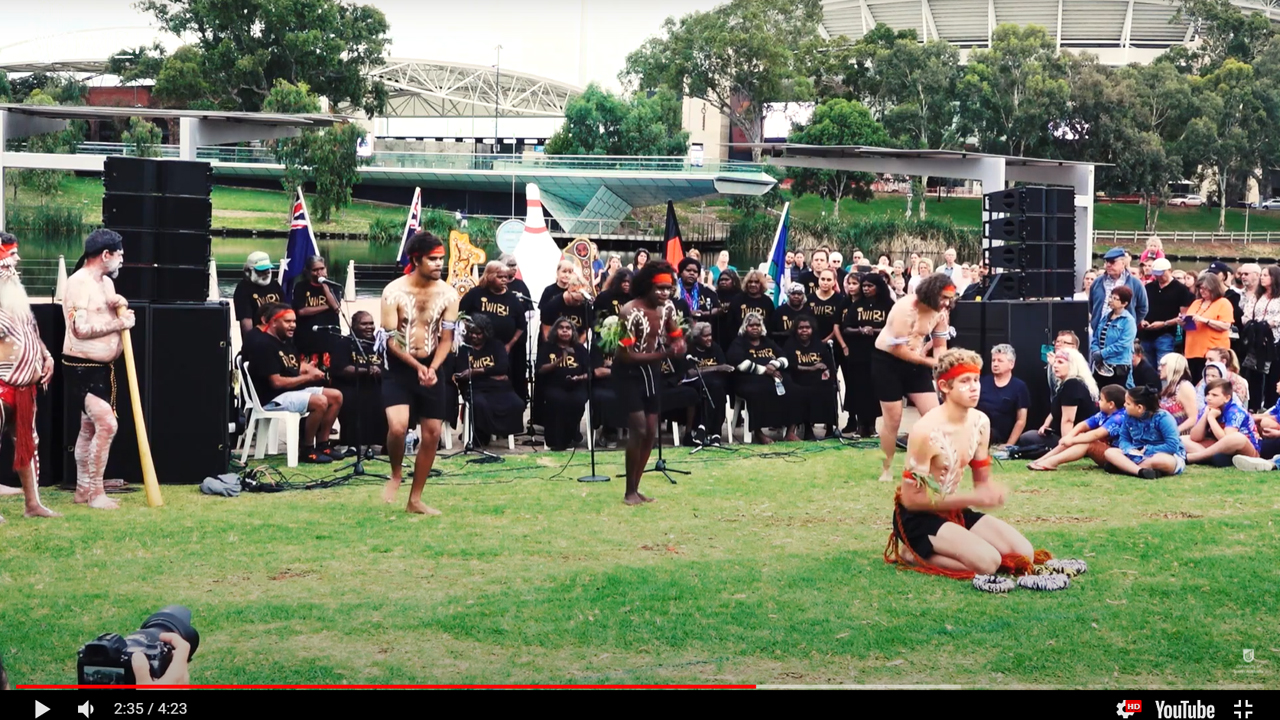22 December 2021
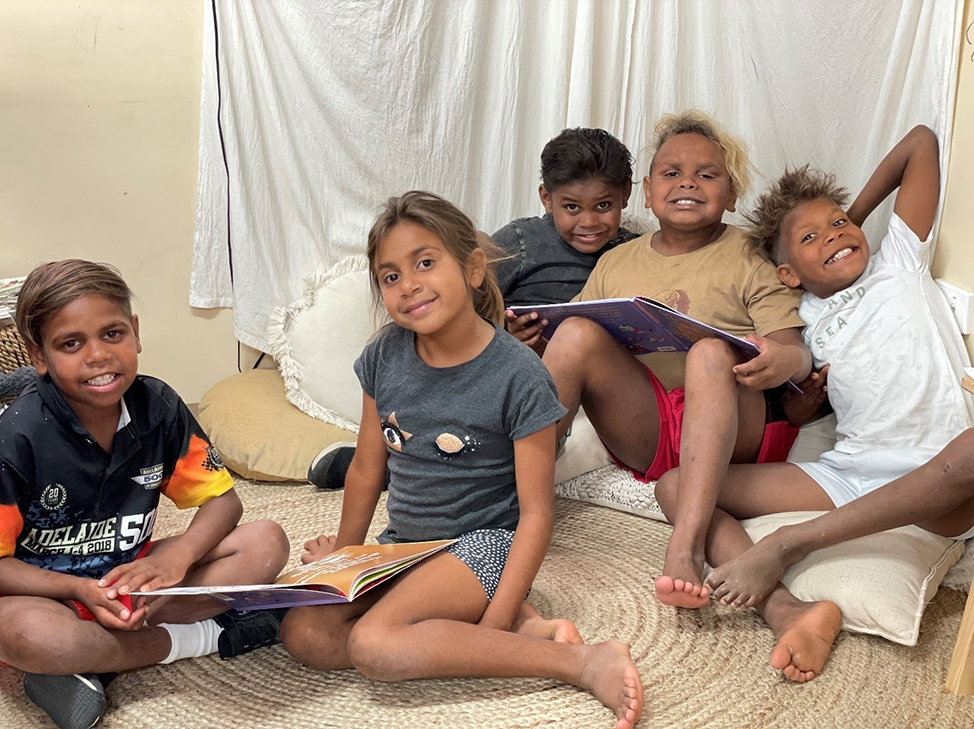
Dr Samuel Osborne
Bachelor of Teaching (Primary)
Bachelor of Education (Junior Primary and Primary)
Dan Bleby
Master of Education
When author Johanna Bell and illustrator Dion Beasley set out to create a book to support remote literacy, Johanna was drawn to Dion’s humorous drawings of camp dogs. It also became very apparent that there weren’t enough children’s books about the lived experiences of these remote Indigenous children.
After thrilling children for almost five years, the delightfully funny story set in a remote Aboriginal community about some naughty camp dogs, Too Many Cheeky Dogs, has been translated into a new Pitjantjatjara edition. Papa Mawal-Mawalpa Tjuṯa has now been published by Allen & Unwin, with the help of the of two University of South Australia alumni.
UniSA has had a strong 30-year relationship with Aṉangu, Pitjantjatjara and Yankunytjatjara (APY) communities through teaching and learning of language and culture. UniSA’s APY Hub connects with the Aṉangu (Pitjantjatjara and Yankunytjatjara) communities through specialised language and culture courses and has just won the Community Engagement award in the Australian Financial Review’s (AFR) Higher Education Awards.
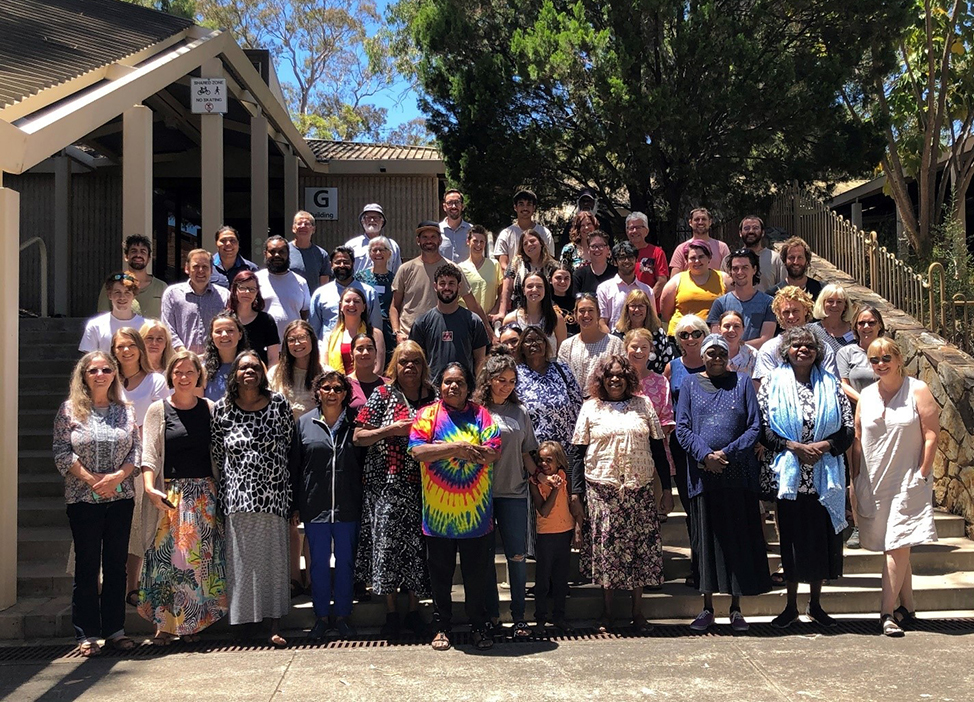
As the Associate Director of Regional Engagement (APY Lands) coordinating UniSA's APY Hub and Pitjantjatjara Yankunytjatjara Language and Culture programs, Dr Sam Osborne has also facilitated an important partnership with the Iwiṟi Aboriginal Corporation working collaboratively on translation work and text productions, particularly First language education texts.
This is how Papa Mawal-Mawalpa Tjuṯa came about.
By bringing groups together like Iwiṟi, senior educators, peer editors, Aṉangu teachers, the first drafts of the much-loved children’s book were created. Then Dr Osborne and Project Officer at the Department for Education for Aṉangu Bilingual Education, Dan Bleby, cofacilitated a translation workshop with four experienced Aṉangu educators to work through some of the complexities of the text.
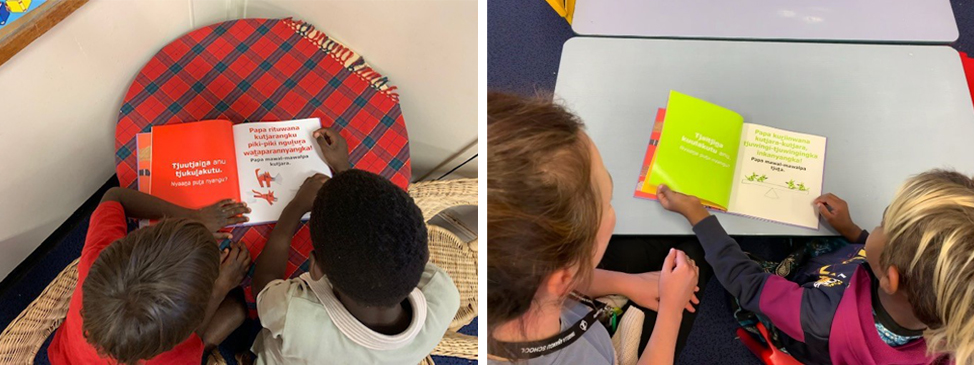
“The great thing about Too Many Cheeky Dogs is that it goes through a range of colours, it has the days of the week, and it has the numbers from one to 10,” Dr Osborne says.
“While this is great for the kids, it was an extremely challenging proposition because traditionally Pitjantjatjara didn’t use numbers after about four and there's no Pitjantjatjara language words for the days of the week. Colours are similar in that there are some very old and long ways of describing colours in relation to the environment.”
“Cheeky Dogs was a unique opportunity to standardise how we are going to write one to 10, Monday to Sunday, and a whole range of colours.”
Dr Osborne also thinks one of the really engaging and neat aspects of this project is the QR code on the front of the book where you can access a recording of Rhoda Tjitayi reading the story. The sense of wonder on the children’s faces when enjoying the book has been a rewarding process for the entire team.
Bachelor of Education (Primary) graduate and Primary Teacher at Yalata Aṉangu School, Nicole Chataway says having stories that are already contextual and relatable for students, be translated into their first language, is a huge step in the journey towards bilingual education in Aṉangu Schools.
“At Yalata Aṉangu School we love the story ‘Too Many Cheeky Dogs’,” she says.
“As a classroom teacher this text is great for building literacy skills for English such as sequencing. Having direct translations like this also builds my capacity as an educator of English as an additional language for dialect students to read and to understand Pitjantjatjara myself.”
“Having stories that are already contextual and relatable for students, be translated into their first language, is a huge step in the journey towards bilingual education in Anangu Schools”
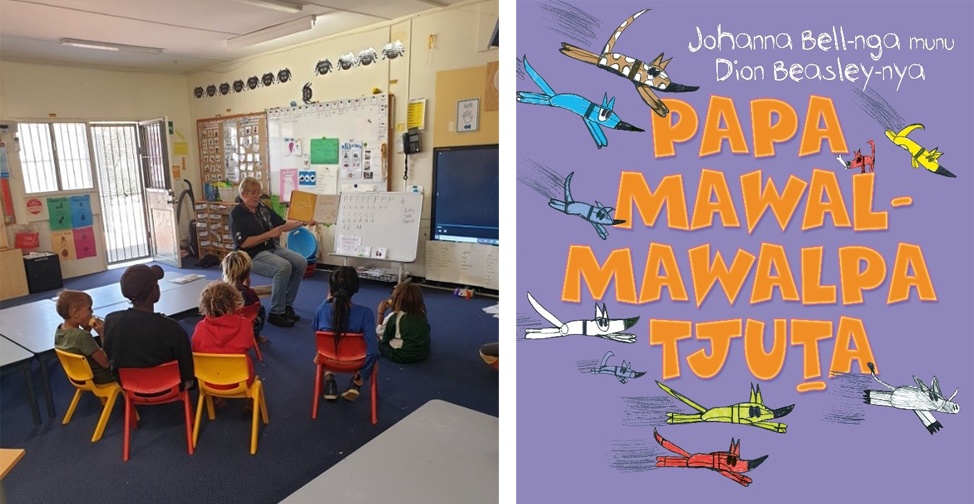
Culturally responsive schools not only support the languages of the child but make them a core part of the child’s education, valuing the rich knowledge and expertise they bring to their learning.
Strengthening Pitjantjatjara and Yankunytjatjara language and culture in Aṉangu schools is a key part of the Department for Education’s Aboriginal Education Strategy for 2019 to 2029. As part of their strong commitment, they provided funding to Iwiṟi Aboriginal Corporation and UniSA to complete the Pitjantjatjara translation and an audio recording, also purchasing 300 copies to be distributed to Aṉangu schools in South Australia.
Project Officer Dan Bleby says in these schools, the promotion of Aṉangu languages are the foundation of success in learning, empowering Aṉangu children to be strong in two worlds.
“At the time of colonisation there were over 250 languages on this continent, and hundreds more dialects,” he says.
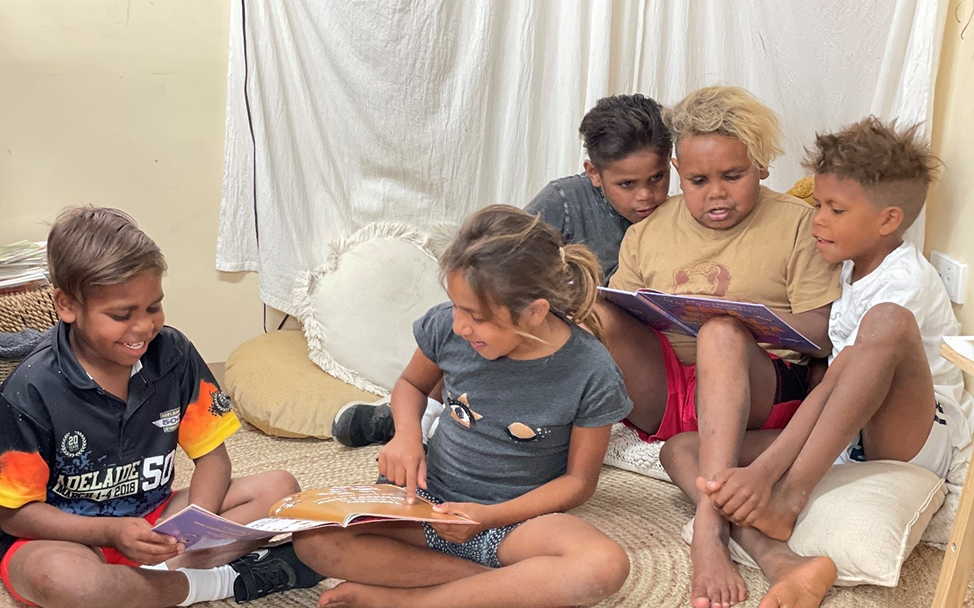
“Today, only twelve of those remain as first languages for Aboriginal and Torres Strait Islander children (including Pitjantjatjara), and even they are under incredible pressure from the language shift towards English. Language, culture and identity are inextricably linked.”
“If you lose your language, you lose a deep part of who you are, your connection to Country, and in the case of Aṉangu to Tjukurpa, the ways of being, doing and believing which bind everything together.”
“Aṉangu communities continue to describe their deep desire to see their languages carried forward into the future. Schools, as largely Western institutions, have an enormous responsibility to make sure what they do is not at the cost of the child’s Aṉangu identity.”
Too Many Cheeky Dogs/Papa Mawal-Mawalpa Tjuṯa written by Johanna Bell and illustrated by Dion Beasley – translated in partnership with the Iwiṟi Aboriginal Corporation, UniSA APY Hub, and the Department for Education – can be purchased through the Allen & Unwin website in English or Pitjantjatjara here.




